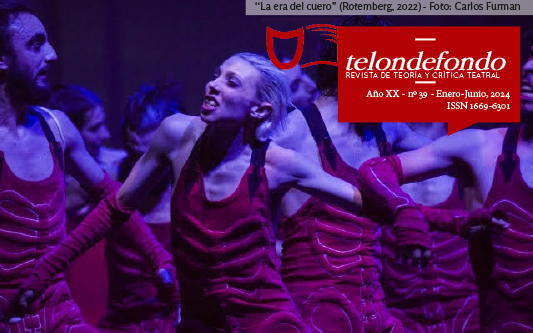Community Theater as Emancipatory Experience in the East of Mexico City: A Dialogue with Rancière
Abstract
Based on the life stories of community theater actors, actresses, and directors from small marginal companies in the eastern area of Mexico City (marked by poverty and violence at different levels of the lives of its inhabitants), this article proposes an approach to J. Rancière’s notion of intellectual emancipation. Following the experience of the French pedagogue Joseph Jacotot, Rancière shows that education and knowledge production teach, foremost, the distinction and inequality between those who possess said knowledge and the ignorant, and how that distance determines a game of positions in which the student will always be the ignorant one no matter how much the gap closes. Intellectual emancipation opposes this “verification of the inequality of intelligences” and questions the structures that separate those who possess certain abilities from those who do not possess them, thereby showing their condition as structures of subjection and submission. The experiences of community theater members in Chimalhuacán, in their own voice, reveal forms of suppression in that false border between knowing and not-knowing. Thus, through the process of intellectual emancipation, the subject produces diverse associations and dissociations and with them creates possible meanings for her own experience and those which she shares with others.Downloads
Copyright (c) 2024 telondefondo. Revista de Teoría y Crítica Teatral

This work is licensed under a Creative Commons Attribution-ShareAlike 4.0 International License.
Los autores/as que publiquen en esta revista aceptan las siguientes condiciones:
-
Los autores/as [traductores] conservan los derechos de autor y ceden a la revista el derecho de la primera publicación, con el trabajo registrado con Licencia Creative Commons Atribución-NoComercial-CompartirIgual 4.0 Internacional, que permite a terceros utilizar lo publicado siempre que mencionen la autoría del trabajo y a la primera publicación en esta revista.
-
Los autores/as pueden realizar otros acuerdos contractuales independientes y adicionales para la distribución no exclusiva de la versión del artículo publicado en esta revista (p. ej., incluirlo en un repositorio institucional o publicarlo en un libro) siempre que indiquen claramente que el trabajo se publicó por primera vez en esta revista.
-
Se permite y recomienda a los autores/as a publicar su trabajo en Internet (por ejemplo en páginas institucionales o personales).











